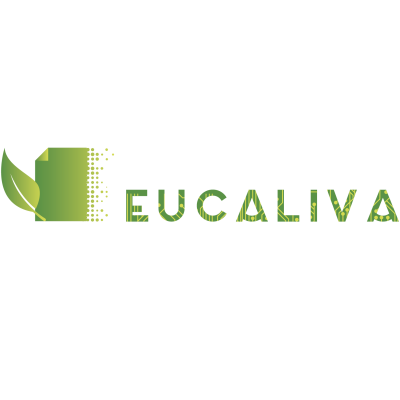
EUCALIVA
EUCAlyptus LIgnin VAlorisation for Advanced Materials and Carbon Fibres

EUCAlyptus LIgnin VAlorisation for Advanced Materials and Carbon Fibres
Lignin from pulping processes represents a major source of underexploited material with an estimated 17 million tonnes of lignin available from pulping processes across Europe. However, much of this lignin is simply burned onsite to provide steam for heat and power production. EUCALIVA aims to create a whole value chain from lignin, using Eucalyptus waste as its source. The project’s main focus will be to increase the efficiency, yield and cost-effectiveness of technologies through new approaches.
Demonstration of the integration of the developed process in existing industrial scenarios is a major EUCALIVA goal. Therefore, the demonstration will take place at already existing pilot plants and industrial installations, bringing further evidence and possible routes to market for the envisaged added value products. The demonstration activities address the scalability of the proposed concepts. Replication will be first simulated and then delivered within the industrial project partners to validate each one of the key innovations providedwithin EUCALIVA.
The Scientific and Technological objectives included in EUCALIVA present a synergy between the innovation and the application of new processes and materials. This will lead to the optimisation of this biorefinery process from an economic and an environmental perspective.